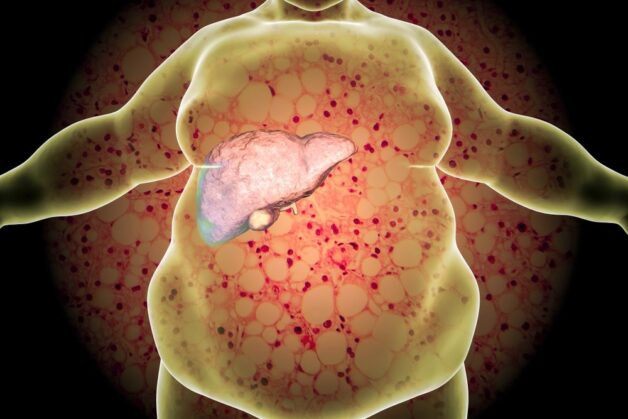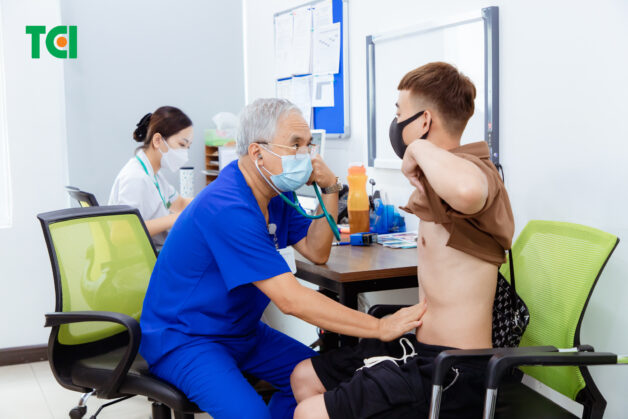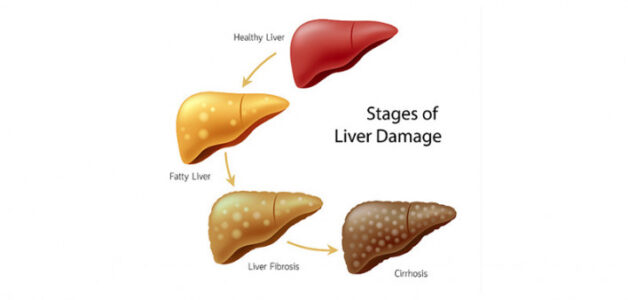Fatty liver disease, characterized by the accumulation of fat in the liver exceeding safe thresholds, can lead to severe complications if left untreated. It may progress to hepatitis, fibrosis, and even liver cancer, posing significant risks to an individual’s health.
1. Understanding Fatty Liver Disease
Fatty liver disease occurs when the amount of fat stored in the liver surpasses safe limits. In a healthy individual, fat constitutes approximately 2% to 4% of the liver’s total weight. For those with fatty liver disease, fat content can exceed 5% of liver weight. In its early stages, the disease may be asymptomatic and relatively benign. However, as it advances to stage 3, it can impair liver function, resulting in fibrosis.
2. Stages of Fatty Liver Disease Development
The disease is categorized into three stages based on the extent of fat infiltration:
Stage 1: Fat comprises 5% to 10% of the liver’s total weight. Symptoms are mild, and health risks are minimal at this stage.
Stage 2: Fat content ranges from 10% to 25%, with subtle or absent symptoms, making detection challenging.
Stage 3: Fat accumulation exceeds 30%, leading to clear and severe manifestations, and complications (thêm) such as liver inflammation, fibrosis, and liver cancer.

Fatty liver stage 3 can seriously impair liver function
3. Symptoms at Different Stages of Fatty Liver Disease
In the early stages, fatty liver disease may not exhibit specific symptoms, often mimicking other conditions. Most patients discover the condition during routine health check-ups through liver ultrasound. As fat accumulates, notable symptoms may include fatigue, weakness, unexplained weight loss, upper right abdominal discomfort, loss of appetite, nausea, jaundice, abdominal swelling, enlarged liver, and prolonged itching.
Promptly seek evaluation, diagnosis, and appropriate treatment from a Hepatology specialist when symptoms arise.

Seeing a doctor as soon as unusual symptoms appear helps detect and treat fatty liver promptly, preventing serious complications
4. Complications of Fatty Liver Disease
Failure to detect and treat fatty liver disease early can result in serious complications:
4.1. Progression to Hepatitis
Prolonged fat accumulation may lead to inflammation, compromising liver function. Chronic inflammation can cause fibrosis, significantly impacting health. Early intervention is crucial to prevent disease progression.
4.2. Development of Cirrhosis
Exceeding 30% liver fat can lead to cirrhosis, altering liver structure and function drastically. Advanced cirrhosis may result in severe complications, with a high mortality rate if not treated promptly.
4.3. Warning Signs of Liver Cancer
Fatty liver disease can progress to liver cancer, often developing on a backdrop of cirrhosis. Early detection of liver cancer enhances treatment possibilities, while late diagnosis poses significant challenges, potentially limiting life expectancy.
Individuals with fatty liver disease, often associated with obesity, overweight, or metabolic disorders, face increased risks of diabetes, hypertension, and cardiovascular diseases.

Failure to detect and treat fatty liver disease early can result in serious complications
5. Preventive Measures for Advanced Fatty Liver Disease
For stage 1 fatty liver disease, lifestyle modifications play a pivotal role in maintaining liver health. Recommendations include:
– Regular hepatology check-ups as advised by a physician.
– Consistent daily exercise, comprising activities such as swimming, yoga, cycling, walking, or aerobics for 30-45 minutes.
– Minimizing alcohol consumption and avoiding binge drinking.
– Managing weight, with weight reduction if Body Mass Index (BMI) exceeds recommended levels.
– Incorporating a diet rich in green vegetables, fruits, especially those high in vitamins C and E, whole grains, and foods that support liver function.
– Limiting cholesterol-rich foods, fried and processed foods.
As the disease progresses to stages 2 or 3, tailored medical intervention becomes crucial to prevent further complications. Adherence to a physician’s treatment plan is essential to mitigate risks and enhance overall liver health.
It is important to note that the information provided is for reference purposes and research and does not replace medical consultations, diagnoses, or treatments. Patients should follow the guidance of healthcare professionals to ensure their health and well-being.








